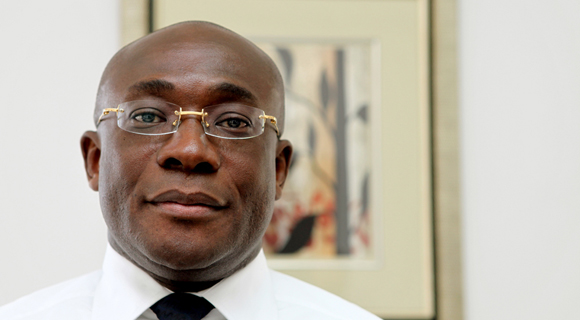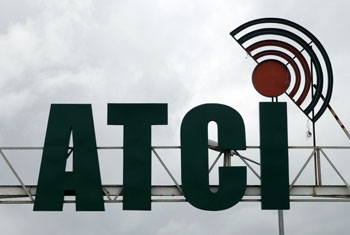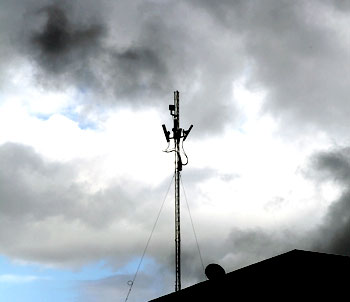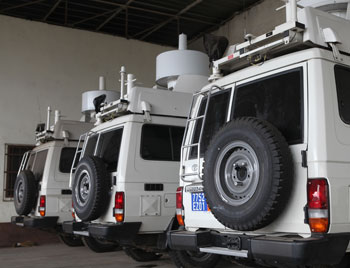Mobile Market in Côte d’Ivoire Regulator
Kouassi Arthur Aloco, General Director of ATCI (Agence des Télécommunications de Côte d’Ivoire)
New laws and new regulations are needed to transform Côte d’Ivoire and its telecommunication market. The function of ATCI is to achieve this transition. The expansion of ICT and telecom industries is a global phenomenon and Côte d’Ivoire should not be isolated.
Interview with Kouassi Arthur Aloco, General Director of ATCI (Agence des Télécommunications de Côte d’Ivoire)

What is the main goal of ATCI?
Ever since we started our activities in ATCI, our main goal has been to make a transition from a market driven by technology to a market driven by services. For that, new laws and new regulations are needed to transform Côte d’Ivoire and its telecommunication market. The function of ATCI is to achieve this transition. The expansion of ICT and telecom industries is a global phenomenon and Côte d’Ivoire should not be isolated. The country should make the conversion from companies that offer one service, like the unconverted mobile operators of standalone internet companies, to integrated companies that will be able to offer many telecommunication and ICT services. Our main goal is for companies to deliver a large plethora of services.
Aside from that, we have the intention to launch the 3G technology in Côte d’Ivoire. To do so, we are waiting and hoping for the approval of the government. There are also many difficulties that we encounter in the ITC sector. An example of those is the identification of mobile users in Côte d’Ivoire, for security, marketing and defence purposes. To tackle this issue, documents have been prepared to guide the regulation decisions of the government.

Another priority is to develop additional infrastructure, because the renting cost in Côte d’Ivoire is too high. These high costs are putting a hamper on the development of the ICT sector and telecommunication activities.
Our aspiration is to make the internet available to the whole country. For example, ATCI has a national plan to provide computers and train volunteers to use the internet. We know the future of the country lies in the use of that technology.
What would you define as a major challenge regulating Côte d’Ivoire’s telecom market, in comparison to the other markets, regionally and internationally? What are its specificities?
The telecommunication sector in Côte d’Ivoire is very specific. We have no reference in terms of an economic model. For example, in a small market like ours, there are five mobile operators and 2 additional mobile licenses. The main issue in the ICT sector in Côte d’Ivoire is that the market has been left to grow without any organization and vision.
A liberalized market should not be a synonym of chaos. The market is liberalized, but we need to control some aspects of its assets and continue to let the operators play the competition game. As a result of the chaos, even though the government issued licenses, some of the mobile operators are leaving the market because there are not enough clients.
What we need is to clean up the market, and this is where we intervene. Our role is to regulate the market. This should be done without interfering in the relations between the operators. Regulating the market, as well as ensuring a free access to the infrastructures and stable prices is our main target. Managing the interconnection price between the operators and the access of the infrastructure will resolve the problem. Focusing on these issues, normally, should encourage the establishment of a balanced market.
What is needed is to clean up the market, and here we intervene. Regulating the market, ensuring a free access to the infrastructures and the stable prices is our main target.
What would you say to the international investors about the telecom market? What would be your message for them? If they are coming from abroad, and do not know the market, what should they be prepared for?
It’s impossible to deliver more licenses for mobile operators. This market is saturated. However, there are a lot of telecommunication activities that could be developed in Côte d’Ivoire; for instance: call centers, contents, internet and its related services. Many communication fields are still lucrative. This should encourage investors to visit us and help us develop the telecommunication sector.
One of the major challenges in the ICT sector in Côte d’Ivoire is the internet. Its access has been hindered by high costs. How can you help in fact to bring down the prices?
There are two other cables that will be operational soon. NTN, Orange and ECE invested in the new sub tree cables. This investment is an excellent way to create a dynamic of competition. Consequently, the service quality will improve and the price of the service will decrease. We should be vigilant not to interfere in a normal economical competition, unless there are bad practices like monopolies, in which case we will intervene.
Can you detail the plans? Regarding the 3G: what are the expectations for this technology? You also mentioned the identification of mobile users. Can you elaborate more on these two issues?
It is expected that the launch of the 3G technology will spread the availability and the quality of the internet via the mobile in Côte d’Ivoire. The 3G technology will permit and facilitate the use of internet through a mobile. The customers won’t need a computer to surf. All they will need is a mobile phone. With 16 million mobile numbers operational today, the market of the 3G technology has a huge potential.
Regarding the identification problem, the lack of identification laws of mobile users has propelled cyber criminality rate. Côte d’Ivoire has become a centre of cyber criminality. To help deal with this problem, partnership with the police were signed, allowing to identify users and track them. Thanks to that, we hope to decrease cyber criminality activities.

Let us not forget that the ICT sector is a development tool; it is not dedicated to fight criminal activities. This does not mean that we are not concerned about these issues, and by doing all that, it becomes possible to eradicate these practices. For example, the minister of ICT in Côte d’Ivoire will hold a conference in Switzerland to explain our action plan to deal with cyber trafficking.
What about the fluctuation of costs from the same operator. Are you addressing that point?
We are working on that matter. With the same operator, a client pays different rates depending on the market prices. We intend to solve that problem by developing a new tool: analytical accounting. By using this tool, we will be able to track offers on the market. We want to be at ease that all firms are in accordance with the competitions laws. It is somehow bizarre that some operators would submit new offers on the market and that authorities wouldn’t be able to know whether or not these offers comply with regulations.
Is the ICT infrastructure being rebuilt?
From April to the end of September, we did not control the quality of the services, giving operators the time needed to repair the damages without pressure. Today, we have sent letters to the concerned parties to inform them that we will soon be inspecting the quality of their services according to the contract with the state of Côte d’Ivoire.
Operators and companies are doing their best to rebuild the damaged infrastructures. They spent considerable amounts of money. Given their actions and their good will, we did not pressure them. But now, quality of services will again be required and controlled.
What are you going to bring to the sector?

As I said before, the market used to be focused on technologies, which explains why there are standalone companies offering and delivering only one service. Knowing that networks are interconnected, our intention is to build the integrated operator, through a new legislation that will permit us to do so. That will allow us to deliver new licenses. From that moment and on, with the change in the regulation, we will be able to allow a company to provide many services to the client, without restricting it to one service.
This is what I call a market focused on services. In this market, there are two main fields: the voice, and the data. (“Data“ refers to text messaging (SMS) and the internet).
In addition, there is a problem with the access to the infrastructure. And this problem is also divided in two parts: the well-known part of the interconnection and the part of the access to other infrastructures.
There is a lot of work to be done in the sector. Simply by doing a benchmarking exercise, we can notice that the cost to access these infrastructures in Côte d’Ivoire is 10 to 12 times higher than other countries. This makes the environment uncompetitive and hinders the development of the sector.
Moreover, call centers for Côte d’Ivoire are located abroad, and that is unacceptable. It is a sector that generates employment and our responsibility as ATCI is to make sure that these activities will be done inside the country. We will be able to achieve these objectives through the new regulations.
Finally, investors should be informed that ATCI is not planning any surprises with these new regulations. Côte d’Ivoire is a member of the Economic Community of West African States (ECOWAS) and this will oblige the government of Côte d’Ivoire to adopt and implement the international standards in terms of regulations.